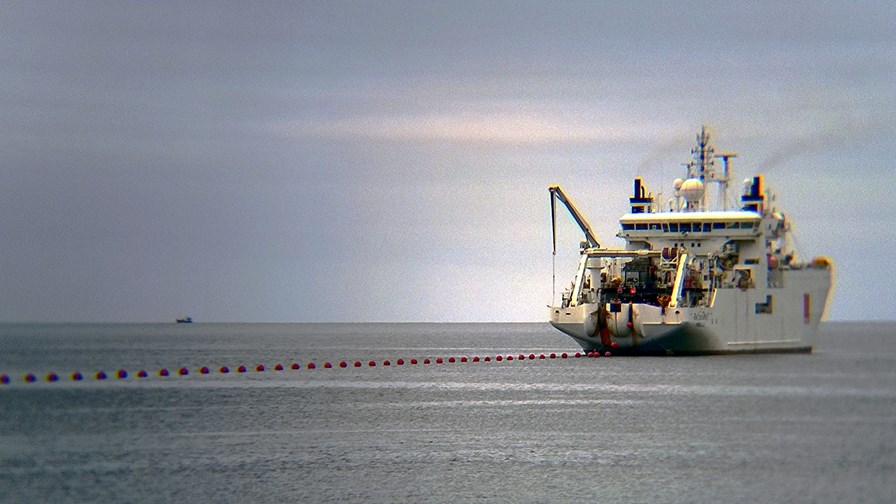
Cable Ship Rene Descartes © Flickr/cc-licence/Mark Stainton
- Team Telecom no longer sounds like a telco’s weekend bonding exercise
- Its role as a protector of US infrastructure and connections has been formalised
- Expect more excommunications
Having harried Huawei from the US and (it looks likely) from the UK, the administration, via the FCC, has subsequently set its sights on a limiting the number of direct telecom connections between China and the US and has strengthened the influence of the previously informal ‘Team Telecom’ whose job it is to identify potential bad actors and have their licenses revoked.
Team Telecom was an ad hoc (informal is the term most often used to describe it) committee of the US Departments of Defense, Homeland Security and Justice tasked to synthesise all their sources of intelligence and information and ‘keep an eye’ on the US telecoms infrastructure to ensure bits of it aren’t falling into insecure hands belonging to the likes of China and Russia.
The Senate Permanent Subcommittee on Investigations recently voiced its concerns over the threats to US networks posed by the Chinese government, and pointed its finger at Team Telecom’s review processes and performance. It noted that the inter-agency body has exercised “minimal oversight” of Chinese state-owned telecoms in the United States. Observers say anticipation of what report was likely to contain seemed to spur the administration to action and it published a new executive order formalising Team Telecom’s role as the instigator of the legal process for reviewing applications for telecom licenses and the like by the FCC.
So team telecom is now called the “Committee for the Assessment of Foreign Participation in the United States Telecommunications Services Sector” and its role is essentially to inform and assist the FCC but in a formal way with due legal weight.
All that concern has come home to roost with the current flurry of activity to name, shame and ban Chinese carriers from operating in the US (see - Chinese carriers protest innocence in response to FCC ‘show cause orders’). The FCC duly denied their authorisations.
Where to now?
Once you manage to ban one or two telecom connections, the logic used to prosecute the case - that it was possible the Chinese government could use its control of, or leverage over, other telecom entities to spy on US government and citizens - can naturally be turned to the next case, using the outcome of the previous one as precedent.
So now the spotlight has swung firmly around to other Chinese telecom connections, with Team Telecom or CAFPUSTSS (probably best to stay with ‘Team Telecom’) signaling to the FCC that it should deny requests for direct subsea cable connections between the U S and China.
Pacific Light Cable Network's application (PLCN) for what would be the first such connection between the U.S. and Hong Kong has come up for review as have other applications.
So this week the FCC was urged to block approval for PLCN because of national security concerns and threats to US persons. The cable could continue to make its planned landings on Taiwan and the Philippines.
Landing in Hong Kong, it is considered, “would expose US communications traffic to collection by Beijing.”
Ramifications
The move has huge ramifications for Hong Kong. Up to now its status as a separate legal and jurisdictional entity (one country, two systems) has made it a preferred place to do business and exchange data, but with the Chinese government apparently cracking down on Hong Kong’s autonomy (a tendency seized upon by the administration as justification for the block) that looks less certain and safe.
Observers point out that there are already existing cables directly connecting the US and China so the sudden worry about another one looks unfounded. They point out that, networks being what they are, it’s possible for international data destined to and from the US to simply be re-routed through a third country.
As things stand though, Hong Kong data people aren’t too worried about not getting access to this particular cable, but they do worry about losing connections to subsequent cables and, over time, slowly losing their high quality bandwidth reputation.
Still, a year or two is a long time in telecoms politics.
Email Newsletters
Sign up to receive TelecomTV's top news and videos, plus exclusive subscriber-only content direct to your inbox.




